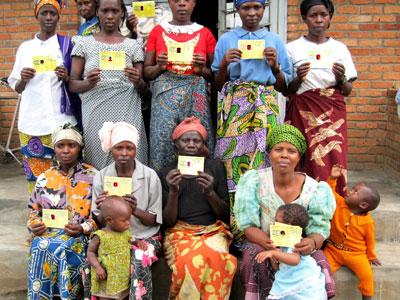EAC mulls harmony in health insurance
The East African Community (EAC) has commissioned a study on how to harmonise social health protection in the five-member bloc.

Women display their health insurance cards. (File)

